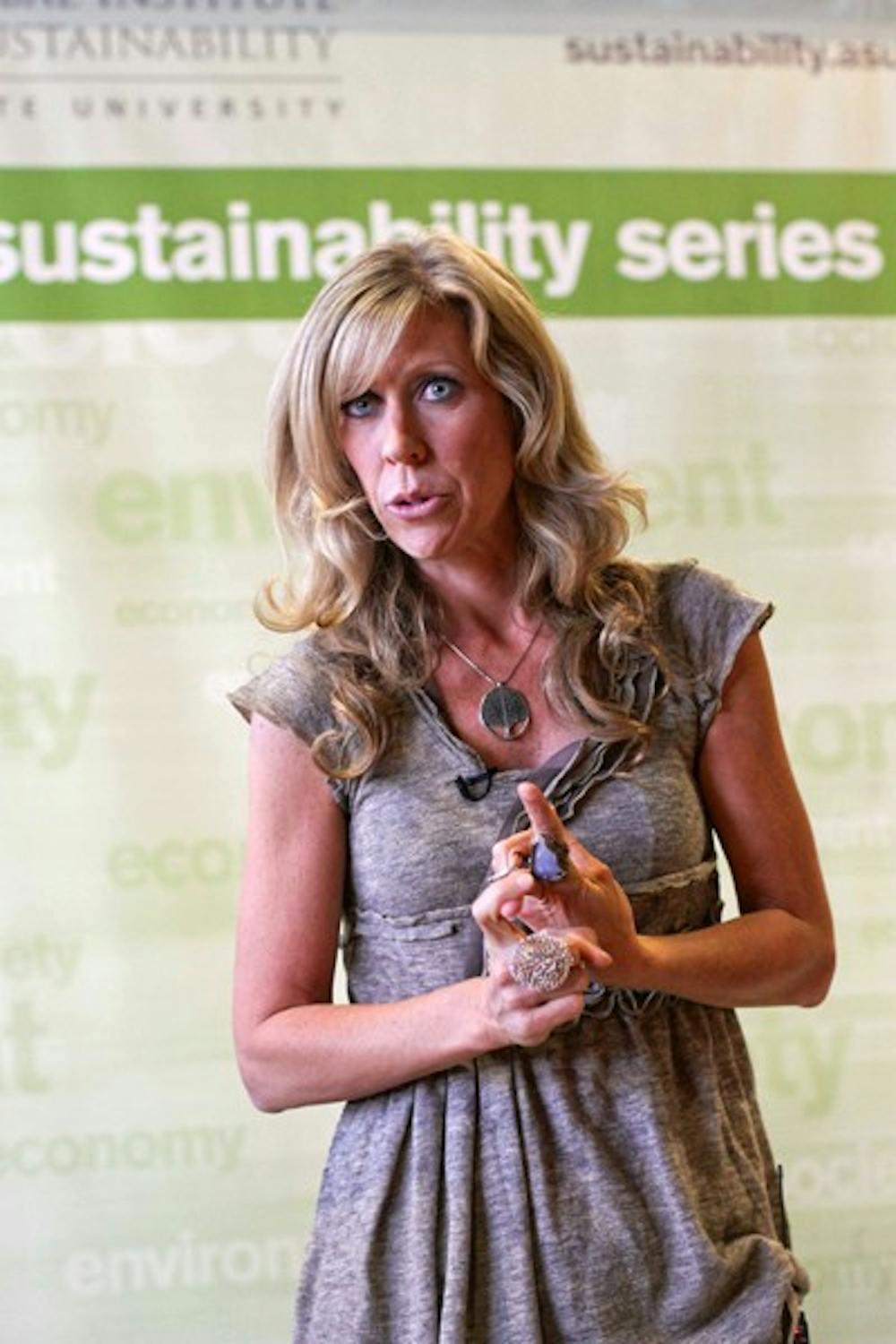Diet changes are not only made to lose weight — an idea veganism advocate Colleen Patrick-Goudreau explored on the Tempe campus Tuesday.
Patrick-Goudreau, founder and director of Compassionate Cooks and author of five vegan lifestyle books, dispelled several myths about veganism in a presentation hosted by the School of Sustainability at Engrained Café in the Memorial Union Tuesday night.
“I think people are actually quite desperate to make a change to their diet, but we live in a culture where it is difficult to make compassionate choices and it is difficult for us to make the most healthy choices,” Patrick-Goudreau said.
The most common question Patrick-Goudreau gets from non-vegans is where to find a source of protein in a vegan diet.
She said the nutrients humans need such as calcium and protein are not directly produced from cows, but rather grow from the earth.
“We supplement cows’ feed; you could supplement your feed with calcium as well,” Patrick-Goudreau said. “Everyone is obsessed with protein, but no one knows what it is to be protein deficient.”
Bok choy or kale has more calcium than cow milk, Patrick-Goudreau said.
The lactose in cow milk is something we are not supposed to digest after about age seven, she said.
“We have no physiological requirement for the milk of another animal,” she said. “Lactose intolerance is not a disorder, it is normal.”
A vegan diet consists of anything that does not come from animals.
The main difference between veganism and vegetarianism is that vegetarians still incorporate animal products such as milk and butter into their diet.
Patrick-Goudreau was not always vegan and grew up on a steady diet of meats and dairy.
After reading “Slaughterhouse” by Gail Eisnitz, a book examining slaughterhouse practices, she immediately switched and has been vegan for 13 years.
“Being vegan is about living my life with integrity and joy and doing everything I can to not contribute to suffering,” Patrick-Goudreau said.
Food and nutrition management senior Sonia Navarro attended the presentation as part of a class assignment. She describes herself as a “flexitarian,” a vegetarian who occasionally eats meat.
“I have been vegetarian for quite a while,” she said. “Many think ‘Oh you just have to be an animal activist, right?’ And no, it’s definitely not just a compassion thing, but also a health conscience thing.”
Those wishing to start a vegan or vegetarian lifestyle can start out slow with many of the foods they already eat and gradually incorporate whole-grain breads and unprocessed fruits and vegetables, Patrick-Goudreau said.
“I eat real foods based on real ingredients,” Patrick-Goudreau said. “We still desire texture and we can get that in nuts and mushrooms.”
Civil engineering freshman Jay Barraza is neither a vegetarian nor a vegan, but said he is considering adding more vegan dishes into his diet. He said he had the stereotypical view of veganism as an unappetizing and unusual diet before attending the presentation.
“I never realized how many resources it takes to actually get the products we use from animals,” he said. “As I get older maybe I will change my diet and have more vegan food in it.”
Vegan diets accommodate a compassionate lifestyle, Patrick-Goudreau said. The benefit she finds behind veganism is being able to live up to her values of healthy living and non-violence.
“We reflect in our daily choices our deepest values,” Patrick-Goudreau said. “We must realize that in doing so we really have the power to create the world we all say we want to have.”
Reach the reporter at newlin.tillotson@asu.edu
Correction: Because of a reporting error, calcium was called a protein in an earlier version of this story. This story has been updated with the correct information.
Click here to subscribe to the daily State Press newsletter.






